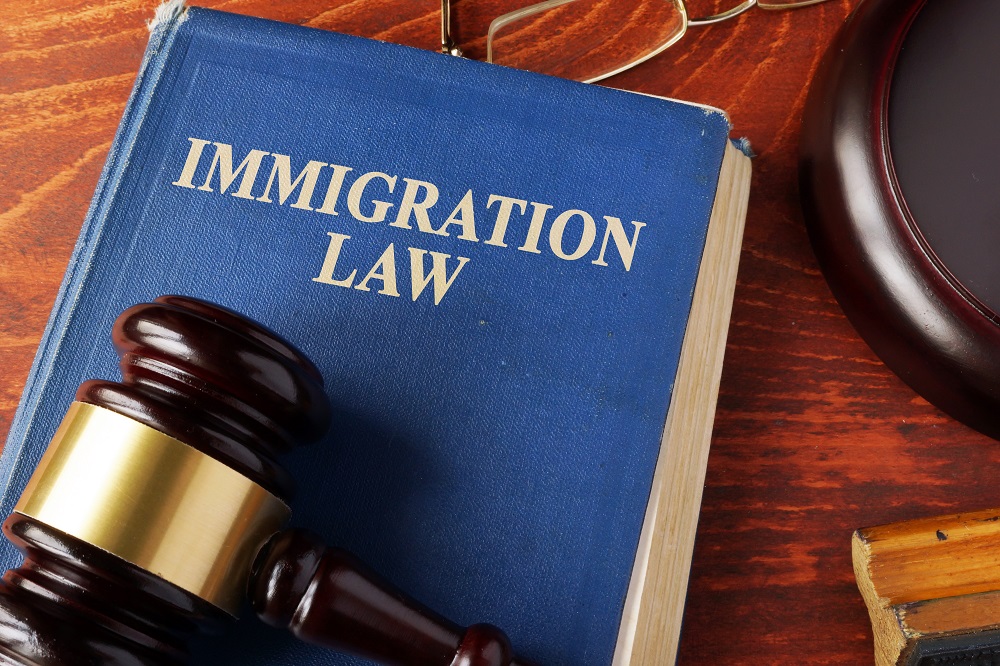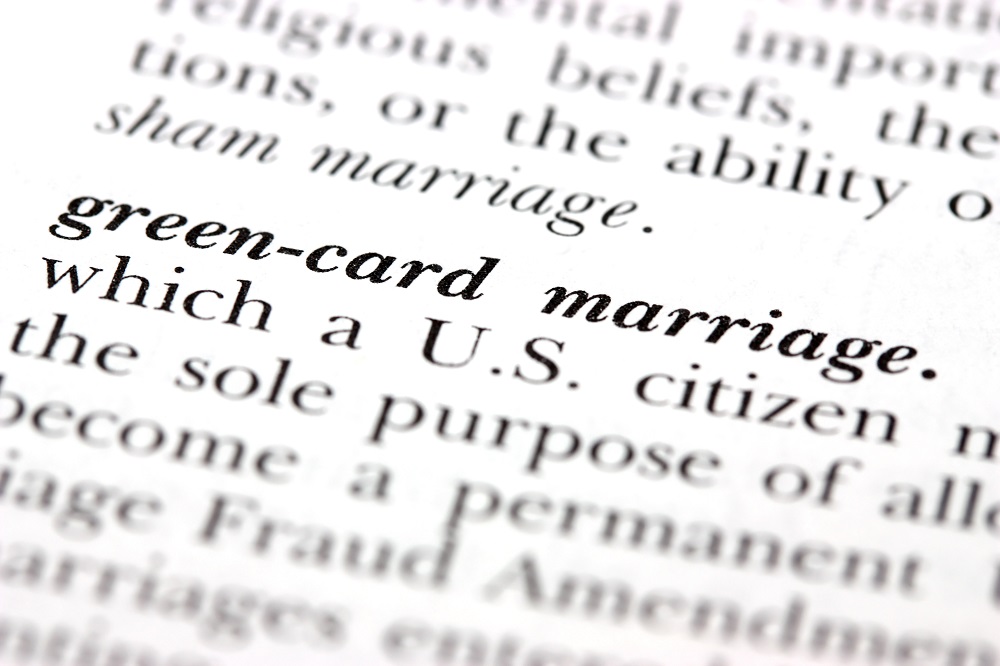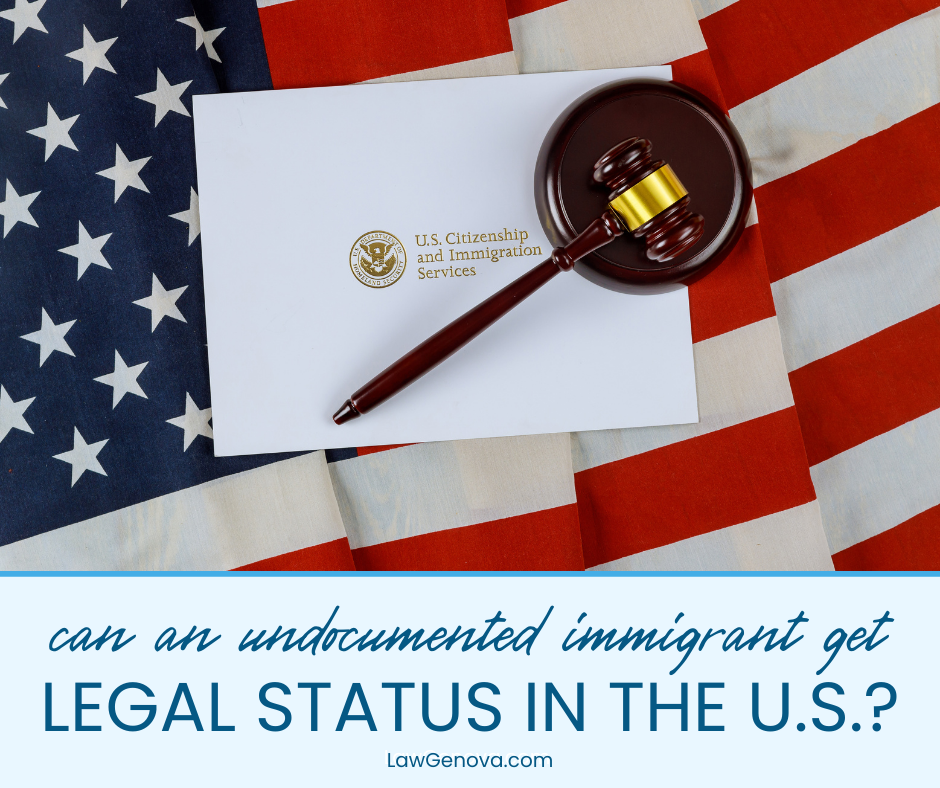There are currently around 11.4 million undocumented immigrants in the United States, and most of these people don’t have a clear path to lawful permanent residency or citizenship. Unfortunately, if you’re in the U.S. without the proper documentation, it can be incredibly difficult to gain legal status here. However, you may have a few options, which this guide explains.
What Does ‘Undocumented Immigrant’ Mean?
An undocumented immigrant is a person from another country – any other country – who doesn’t have the lawful right to be (or remain) in the United States. For example, people who were born in the U.S. have a natural-born lawful right to live in the U.S.; so do most people with a U.S. citizen parent. Some people who have a lawful permanent resident parent have the lawful right to be or remain in the United States, too.
But outside those groups, most people who weren’t born in the United States need prior authorization before entering the country. Even with prior authorization to enter the U.S., most foreign-born people need authorization to work, study or live in the United States. Even vacationers need the appropriate documentation to travel around the country.
People who don’t have the natural-born right to remain in the U.S. or who don’t have the appropriate documentation are considered undocumented immigrants.
Undocumented Immigrants Who Lawfully Entered the United States
It’s important to note that the term undocumented immigrants applies to any person who doesn’t have the appropriate documentation to remain in the United States – not only to people who entered the country unlawfully. In fact, somewhere around half of all undocumented immigrants entered the U.S. lawfully but overstayed their visas. (When you have a visa to enter the United States, it’s typically only good for a specific period of time period you must leave the country by the time your visa expires.)
U.S. Immigration Law on Undocumented Immigrants
U.S. immigration law is very strict when it comes to undocumented immigrants (though not as strict as some countries are). Often, people found to be in violation of U.S. immigration law are removed from the country, and many are prohibited from returning for a certain period of time.

Can an Undocumented Immigrant Get Legal Status in the U.S.?
There are a few ways people who are in the United States unlawfully may get legal status without leaving and coming back with proper authorization. However, these are the exceptions, not the rules. That means if you’re currently in the United States unlawfully, your best chance to get lawful status is to leave, apply to come back, and wait for a decision from USCIS. You may wish to speak to an immigration attorney who can give you the guidance you need. But in the meantime, the following sections outline the few options undocumented immigrants have for gaining legal status in the United States.
Asylum
U.S. immigration law allows some people to apply for asylum. Essentially, asylum is protection; people who are granted asylum in the United States are allowed to live and work here so they don’t have to return to their home countries.
Asylum is only available in certain circumstances, though. The United States government will only grant you asylum if you’ve been persecuted or are in danger of persecution in your home country based on one of the following five factors:
- Religion
- Race
- Nationality
- Political opinion
- Membership in a particular group
The U.S. government’s definition of persecution is fairly narrow and includes things like physical violence or torture, violations of human rights (such as genocide, slavery, or forced abortion or sterilization), threats of harm and unlawful detention. It also includes the infliction of mental, emotional or psychological harm, as well as economic discrimination or harm and a few other types of discrimination and harassment.
The persecutor is important, too. If you’re seeking asylum in the U.S., you must show that the persecution came from your country’s government or groups that the government is unable to control (such as guerillas, tribes or organized vigilante groups). In some cases, you may also be able to seek asylum in the U.S. if you’ve been the victim of domestic violence in a country that won’t (or can’t) protect you.
You may apply for asylum in the United States when you’re at a border crossing or within a year of your arrival in the country (or within a year of your visa’s expiration date). You may even apply for asylum if you entered the U.S. unlawfully. For example, if you entered the U.S. on March 15 (or your visa expired on March 15) of this year, you have until March 15 next year to apply for asylum.
Related: All about immigration interviews
Temporary Protected Status
Temporary protected status, or TPS, is available to people whose home country has recently been through an environmental or natural disaster, a civil war or other circumstances that makes returning dangerous. This humanitarian program is only available to people from certain countries (those that have had a recent disaster, war or special circumstances), and the list of countries is subject to change.
To be eligible for TPS, you must be a national of one of those countries (or a person with no nationality who last resided in one of those countries). You must also file during a specific time period, and have been continuously residing in the United States since the date specified for your country.
TPS may not be available to you if you:
- Have been convicted of a felony, or if you’ve been convicted of two or more misdemeanors, in the United States
- Are inadmissible to the United States
- Are barred from asylum, such as persecuting another person or inciting terrorism
- Haven’t been continuously present in the U.S. for the required amount of time
If USCIS grants you temporary protected status, you may be able to re-register to maintain your benefits. That applies to all beneficiaries, whether USCIS, an immigration judge, or the Board of Immigration Appeals (BIA) granted your TPS status.
Related: When do you take the U.S. citizenship test?
DACA
Deferred Action for Childhood Arrivals (DACA) is a U.S. government policy that may allow you to request deferred action on removal. Plainly speaking, DACA may enable you to stay in the United States, even if you entered the country unlawfully – but only if you:
- Were under the age of 31 on June 15, 2012
- Arrived in the U.S. before you turned 16 years old
- Have resided in the U.S. since June 15, 2007 through today
- Were present in the U.S. on June 15, 2012 and are present at the time you petition USCIS for DACA benefits
- Did not have a lawful status on June 15, 2012
- Are in school, have graduated from school or have a certificate of completion from high school, or have obtained a general education development (GED) certificate, or are a veteran of the armed forces (including the Army, Navy, Marines, Air Force, Coast Guard or Space Force) of the United States
- Have never been convicted of a felony, significant misdemeanor, or three or more other misdemeanors, and you’re not a threat to public safety or national security
You may request DACA even if you’re in removal proceedings, have a final removal order, or have a voluntary departure order, as long as you’re not in immigration detention at the time you file your request. If you’re requesting DACA for the first time, you may want to speak to an attorney about your situation; your immigration lawyer can answer your questions and help ensure that DACA is the right path forward for you (and if there’s a better solution, she’ll let you know).
Related: Getting a green card with a criminal record
Undocumented Veterans of the U.S. Armed Forces
If you served in the U.S. armed forces, including the Army, Navy, Marine Corps, Air Force, Coast Guard or Space Force, you may be eligible to stay in the United States even if an immigration judge finds that you’re unlawfully present here. However, you’re only eligible to stay based on your prior service if you were honorably discharged and you served between the following dates in one of the following conflicts:
- June 25, 1950 to July 1, 1955 in the Korean War
- February 28, 1961 to October 15, 1978 in the Vietnam War
- August 12, 1990 to April 11, 1991 in the Persian Gulf War
- September 11, 2001 to the present in Operation Enduring Freedom
You may be eligible even if you didn’t deploy. You should speak to an immigration attorney about your situation; your lawyer can help you file the appropriate petitions to remain in the United States.

Can You Get Married to a U.S. Citizen to Avoid Deportation if You’re Undocumented?
Marrying a U.S. citizen or lawful permanent resident (green card-holder) won’t solve your problems if an immigration judge orders you to leave the United States. In fact, doing so will likely result in your removal from the country – and you may even be barred from coming back for a certain period of time.
Related: How to get a green card through marriage
What Happens if the Government Finds Out That You’re Undocumented?
Typically when the U.S. government finds out that a person is undocumented, the person may be arrested by Immigration and Customs Enforcement (ICE). As a division of the Department of Homeland Security (DHS), ICE is tasked with removing undocumented immigrants from the country. However, other law enforcement agencies can, and do, often take undocumented immigrants into custody. Sometimes when a person is arrested by a different law enforcement agency, the agency turns them over to ICE. Sometimes U.S. Customs and Border Protection (CBP) arrests undocumented immigrants, as well.
After an arrest, there’s a very good chance that you’ll be put into removal proceedings. (See the following section, “Deportation (Removal) Proceedings,” for more information.) In some cases, people may be forced out of the United States without going through formal removal proceedings or appearing before a judge; these are called expedited removal proceedings.
Deportation (Removal) Proceedings
Removal proceedings – commonly called deportation proceedings – are legal procedures that many undocumented immigrants face. An ICE deportation officer generally makes an initial determination on whether someone should go into removal proceedings shortly after an arrest. Usually, when people face removal proceedings, the official charge is related to overstaying a visa or unlawfully entering the United States; sometimes the charge is related to a previous criminal conviction, as well.
Related: Your guide to deportation proceedings
How Can You Get Legal Status as an Immigrant in the U.S.?
It is possible for an undocumented immigrant to get legal status in the United States, but most often, it’s easier to apply for legal status from outside the U.S., when you’re not in violation of U.S. immigration law. In either case – whether you’re currently in the U.S. without documentation or you’re outside the U.S. and wish to immigrate here – you should speak to an attorney before you attempt to file any petitions with USCIS or another government agency. However, bear in mind that it’s often difficult to get legal status if you’ve entered the country unlawfully or overstayed a visa.
Do You Need to Talk to an Immigration Attorney About Getting Legal Status?
If you need to talk to an immigration attorney, we may be able to help you. Call our office at 914-481-8822 to schedule a consultation with an experienced, knowledgeable immigration attorney who can answer your questions and give you the legal advice you need.


